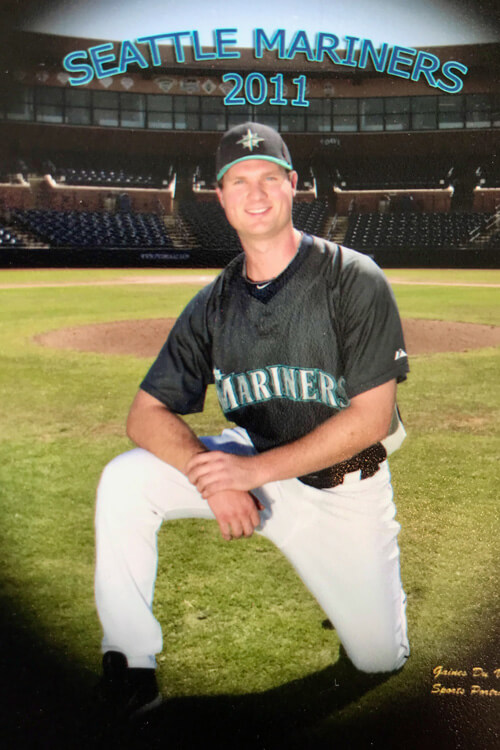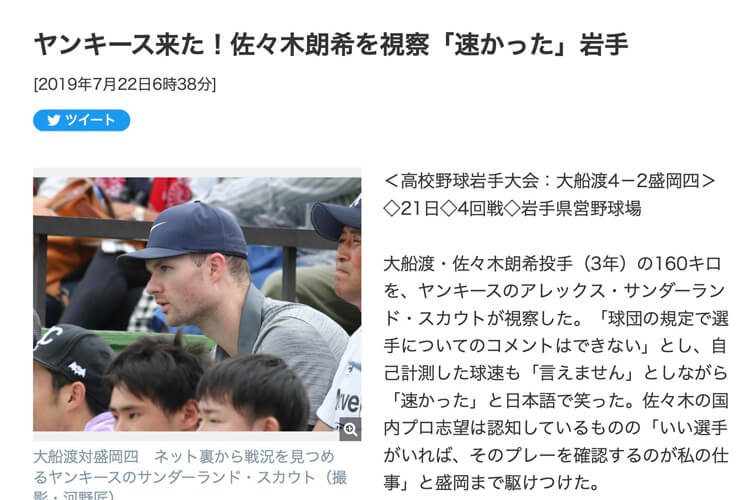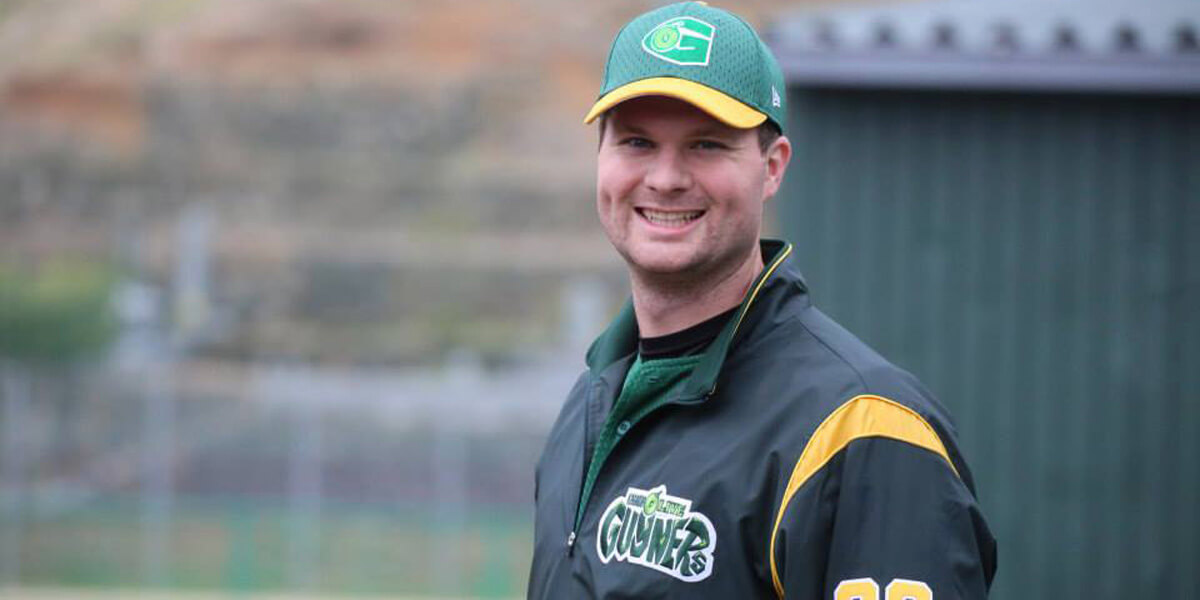In early 2022, it was looking like there might be no Major League Baseball to watch this summer. But by early March, the 99-day MLB player lockout ended, and fans breathed a sigh of relief. For Alex Sunderland ’07, that meant back to work as usual.
A Pro Scout for the New York Yankees for the last seven years, Sunderland lives and works in Tokyo, where he evaluates Japanese players. Before becoming a scout, Sunderland played professionally himself—pitching for the Seattle Mariners and playing in Japan and for independent leagues.
Of course, before all of that, he pitched and played shortstop for Colorado Academy—including on the 2006 Varsity Baseball Team that made it to the Colorado State High School Baseball Championships.
“All of us on the team that year still look back on that as the most fun we ever had playing baseball,” Sunderland says.
Finding the field of his dreams
 Long before he stepped on the field at CA, Sunderland had his sights set on playing professionally.
Long before he stepped on the field at CA, Sunderland had his sights set on playing professionally.
“It was always my dream to play in the Major Leagues,” says Sunderland, who attended CA from Second through Twelfth Grade.
But when his name was called in the 2011 MLB draft, at first he didn’t hear it.
MLB scouts had told him he would likely be picked between rounds 15 and 25 of the 50-round process. He’d been watching the live show from home with his older brother, but by day three and round 30, he’d begun to lose hope.
Then, in the 38th round, Sunderland’s dad called him.
“I was waiting for a call from a team, but when I answered the phone, it was my dad,” Sunderland says, remembering. “He said, ‘You got picked.’ My brother and I just hugged.”
Sunderland had been chosen to play for the Seattle Mariners. To get there, he’d had to overcome several injuries and the handicap of playing Division III ball in college, instead of Division I. In a typical year, the MLB drafts fewer than a dozen players from Division III teams.
“It was a long journey, and I was a little bit of a late bloomer, since I started throwing hard at age 21-22,” he says. “So to overcome injuries, to know all the effort you put in, and to see your time and investment finally pay off, it was certainly very satisfying.”
He didn’t have a lot of time for celebration though.
“I had to pack my bags, sign a contract, and get on the road quickly,” he says. “There were just a few days before I had to report to the Mariners complex in Arizona for spring training.”
Sunderland was “thrown into the fire with talented young players.” After a year with the Mariners, he played for independent leagues in the United States and abroad for three years. Then, he got a new kind of offer.

Life as a pro baseball scout
In 2015, Sunderland got a job scouting for the Yankees. Based in Chicago, he watched independent Minor League games in search of talented players looking for a chance to sign a contract.
He enjoyed the “diamond in the rough” nature of the work, as he scouted the lowest level of professional baseball for players with skills that could translate to a Major League career.
“These players are often overlooked, because they’re from a small school, learning a new position, or recovering from an injury—kind of like I was,” Sunderland says. “If you sign one of these players, that means you were the first person to see them, to notice them. Of course, the signing is always the player’s success, but it feels like a big success for you as a scout, as well.”
During his first year of scouting, Sunderland spent 250 nights in hotels from March to October. He enjoyed the work, but the travel was grueling.
About two years into his time with the Yankees, he learned of an opportunity with less travel but a home base halfway around the world. The team was looking for someone to scout Japanese players full time, on location.
Sunderland had Japanese connections and language skills from being a player there. He got the job and has lived in Tokyo ever since.

When high school English lessons come back to visit
As both a scout and a player, Sunderland’s multilingual abilities have served him well. In addition to the Japanese he learned as a player in the country, he is also proficient in Spanish, which he first started learning at CA.
“CA starts you young in language learning,” he says. “I started Spanish in Fifth Grade, and I had so many wonderful Spanish teachers throughout the years who made the language fun.”
Over a third of the baseball world is Spanish-speaking, so his Spanish skills helped him get his foot in the door in the baseball industry. And when he was playing in the Minor Leagues, he often acted as translator for his teammates from South and Central America.
Sunderland says the writing skills he learned at CA have also served him well in his career. It turns out professional baseball scouts have to do a lot of writing.
“I go watch a team play, I write a report on a player, and I have to make a case for why I like or dislike him,” he says. “I wrote so many essays at CA, and I feel like it was drilled into me that you have to be concise in your thoughts, and you have to have evidence from the text to support your opinion. So, I’m able to be a concise and persuasive writer as a scout.”
As a CA student, Sunderland enjoyed the many academic and extracurricular offerings. In addition to baseball, he played golf and basketball, sang in CA choirs, and played piano.
“Obviously, the academics were quite good,” he says, “but CA also gave us the chance to try different things and grow into a well-rounded person.”
